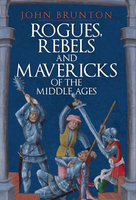New, Quality Gift Books - 50-90% off - over 2500 titles
Your basket is empty.
Categories Last Chance to buy! REALM DIVIDED: A Year in the Life of Plantagenet England
REALM DIVIDED: A Year in the Life of Plantagenet England
Book number: 94336
Product format: Paperback
In stock
Bibliophile price
£3.00
Published price
£8.99
Customers who bought this product also bought
|
ROGUES, REBELS AND MAVERICKS OF THE MIDDLE AGES
Book number: 95213
Product format: Hardback
Bibliophile price
£8.00
Published price
£20
|
BUZZ IN THE MEADOW
Book number: 95253
Product format: Paperback
Bibliophile price
£5.00
Published price
£9.99
|
DOCTOR WHO GREETING CARDS - Assorted Colours Pack of 5
Book number: 93977
Product format: Unknown
Bibliophile price
£4.50
|
|
HOLY LAND IN THE ERA OF THE CRUSADES
Book number: 95156
Product format: Hardback
Bibliophile price
£9.00
Published price
£25
|
WONDERFUL THINGS 1: A History of Egypt Egyptology
Book number: 95145
Product format: Paperback
Bibliophile price
£5.50
Published price
£24.99
|
BALLOONOMANIA BELLES: Daredevil Divas
Book number: 95068
Product format: Hardback
Bibliophile price
£7.50
Published price
£19.99
|
Browse these categories as well: Last Chance to buy!, History







